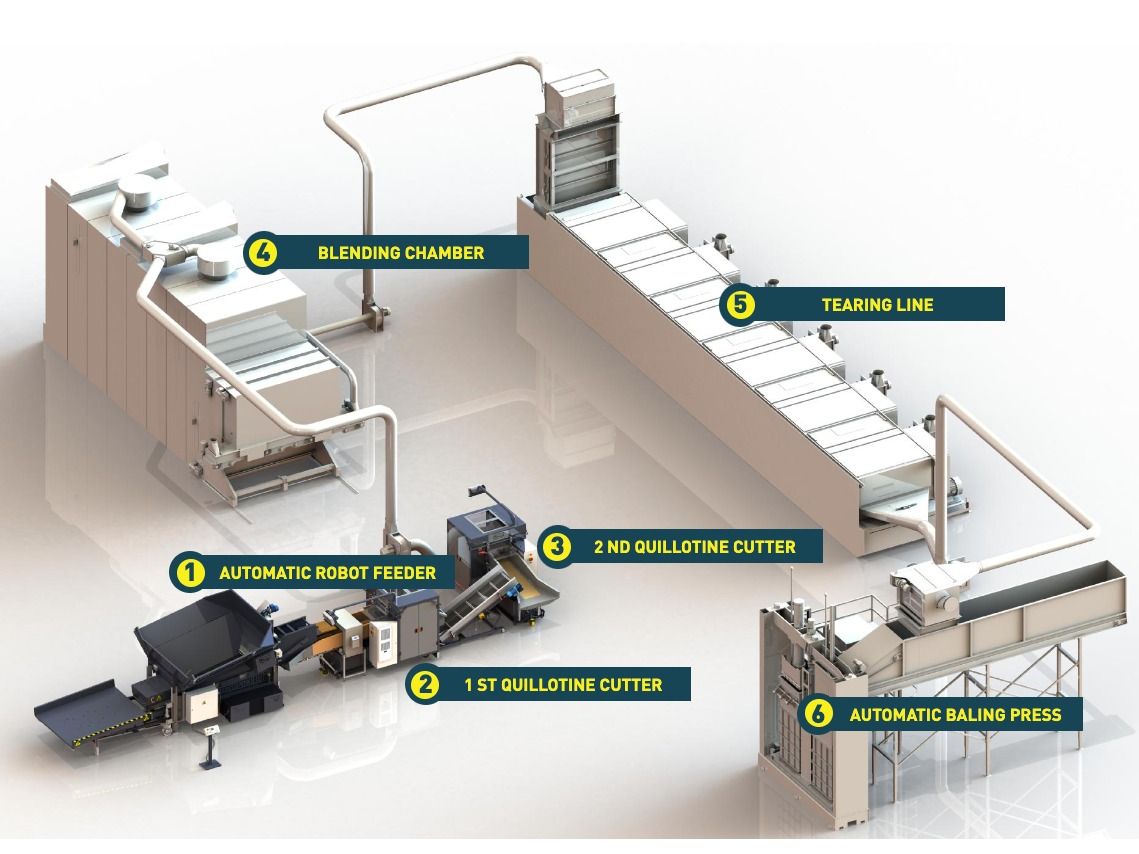Approved by curator

Added: Aug 30, 2021
Last edited: Apr 07, 2023
Rester Oy is a Finnish textile recycling company specializing in recovering and processing businesses' end-of-life (EoL) textiles into new fibres and raw materials. Rester aims to provide circular solutions that improve resource efficiency and utilize textile waste to create new business opportunities.
The textiles industry is notorious for its global exploitation of resources and worsening environmental and health impacts. Rester projects that cumulative waste in the EU is predicted to increase from 2,290,000 tonnes in 2014 to 50,380,000 tonnes by 2035. Approximately 80% of this waste is incinerated, producing 4,122,000 tonnes worth of emissions (CO2 equivalent). For the textile industry's carbon footprint to be significantly reduced, the recovery and reuse of its materials must be pursued to decrease the sector's use of natural resources. The massive amounts of textile waste currently being produced present a viable resource opportunity.
Rester's recycling process uses advanced technology to convert textile waste into high-quality raw materials for new uses. Their process provides an environmentally responsible way for companies to dispose of their waste. Rester's regenerated fibres can be applied in the production of textiles and apparel, non-wovens and technical textiles, yarn, household items and furnishings, hygiene and cleaning products, insulation, automotive materials, geotextiles, composites, etc.
During the recycling process, materials are cycled through the following steps:
1) First, the automatic robot loading-feeder feeds material in bulk from large bales/boxes to the downstream processing equipment.
2) The materials are then carried via conveyer belt to a steel roll assembly, where the 1st quillotine cutter utilizes the scissor effect of its two knives to make clean cuts in the material.
3) The 2nd quillotine cutter is positioned perpendicularly to the first cutter to make a second cut in the processed material that further reduces its size.
4) The Blending chamber then creates homogeneous material blends, removing zippers, buttons, and other "pollutants" from the waste material stream.
5) The blended material is sent through the tearing line, which processes the material back into fibres
6) Lastly, the automatic baling press automatically packs the fibres into bales for efficient handling during downstream processes.
Rester's mission is aligned with the United Nations Sustainable Development Goals (SDGs), 6: Clean water and sanitation, 9: Industry, innovation and infrastructure, 11: Sustainable cities and communities, 12: Responsible consumption and production, 13: Climate change, and 17: Partnerships for the goals.
Rester also endeavours to foster a global ecosystem of industry players that can collaborate to develop closed-loop systems which enable fibres to pass through the value chain several times over. They partner with companies, technology providers, science institutions, investment/innovation funds, financial institutions, and foundations to realize circular innovations.
Rester's recycling process reduces water use and emissions while forgoing the use of chemicals. It is also a price competitive and environmentally sound alternative to incineration. For every tonne of fibre produced, 2,127,500 litres of water (the equivalent of one Olympic-sized swimming pool) and 5,170 kg of CO2 (equal to that produced by driving 32,805 km in a passenger car) is saved.


Well-being
Revenue Potential
Innovation
Reduce Emissions (SDG13)
Reduce Material Consumption (SDG12)
Minimise Waste (SDG12)
Save Water (SDG6)
Goods and Services
Waste Management
Home and Office Furnishings
Fashion and Textiles
Retail
Machinery
Construction Materials and Products
Prioritise regenerative resources [Textiles]
Regenerative materials [Textiles]
Material efficiency [Textiles]
regenerative materials
circular textiles
end-of-use
circular fibers
SDGs
textile recycling
downcycling
recyling innovation
end-of-life textiles
regenerative fibers
automated recycling
circular solutions
recycling technology
recycling solutions
